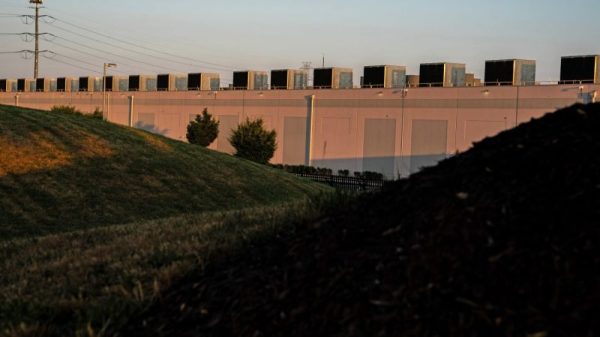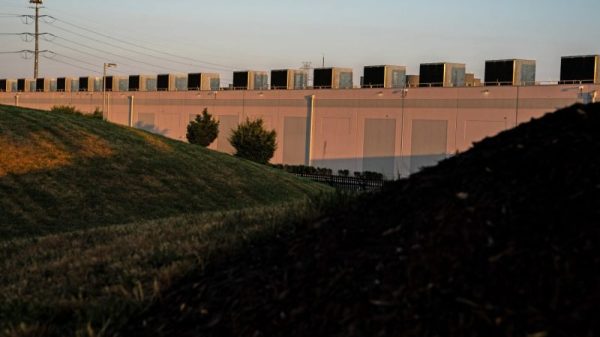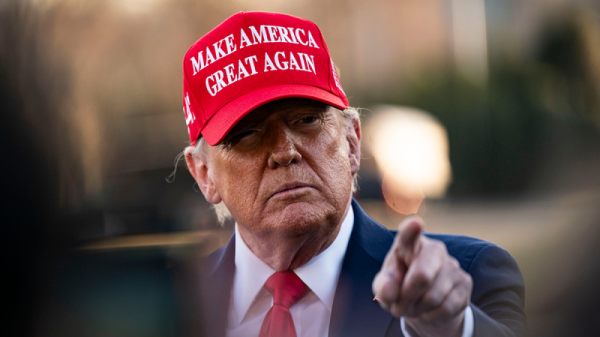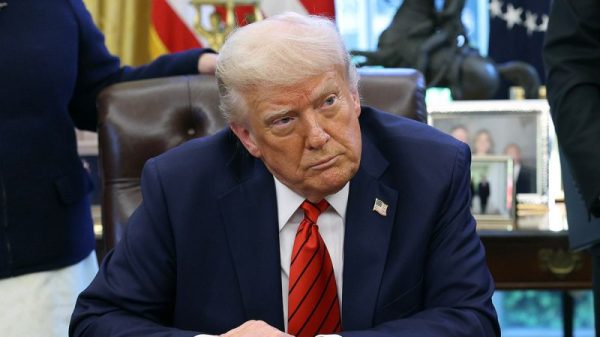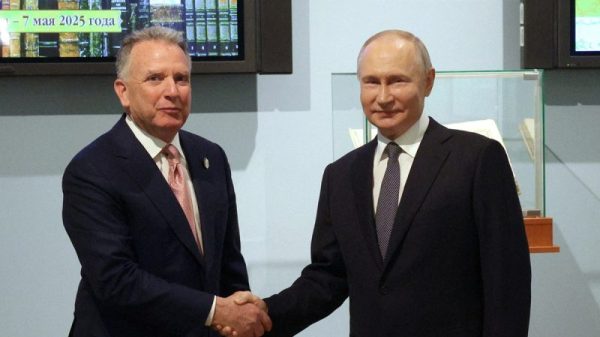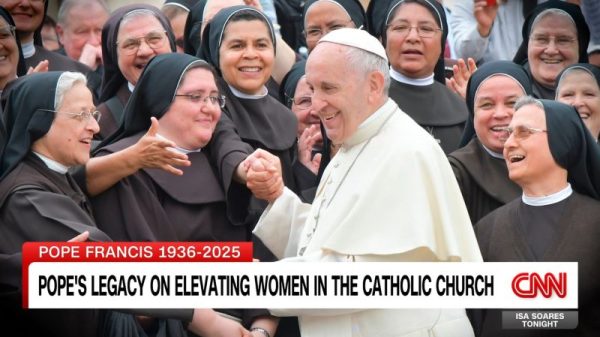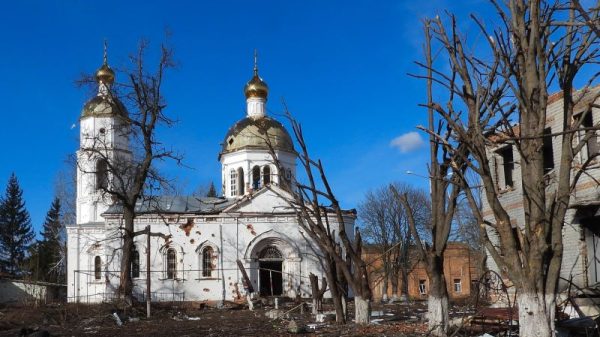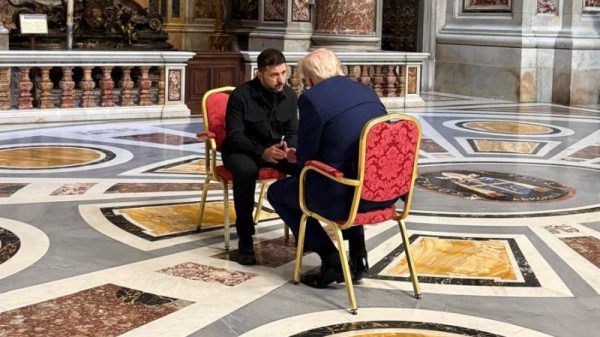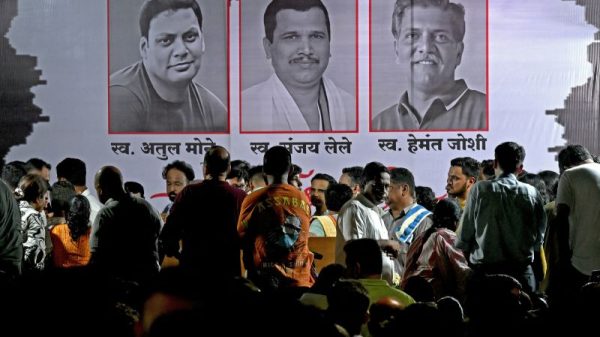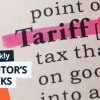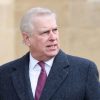When Rep. Pete Aguilar (D-Calif.) read a New York Times op-ed last year titled, “The Jan. 6 Committee Has Already Blown It” that mocked the “pathetic” goals of the House select committee investigating the attack on the U.S. Capitol, he brushed it off as “bulletin board material.”
It was the kind of article, he explained, that he’d pin on a wall as motivation to prove the committee’s skeptics wrong. “History will judge our work,” Aguilar, a member of the committee, said he thought to himself at the time.
Over a year later, Aguilar said he was sitting in a dentist chair on Tuesday when history’s potential initial judgment popped up on his phone. A flurry of texts alerted him that a grand jury in Washington had indicted former president Donald Trump for crimes related to his efforts to overturn the results of the 2020 election.
As he read through Special Counsel Jack Smith’s four count, 45-page indictment, Aguilar said he was satisfied to see how many details found in the document had been uncovered first by investigators on the committee, who collected millions of pages of documents and hours of testimony from 1,000 witnesses, held 10 public hearings and ultimately published an 800-page report on the events that led up to the Jan. 6, 2021, attack.
“We got it right,” he added.
For those involved with the committee’s work, Smith’s indictment brought a collective sigh of relief, according to a dozen people who spoke with The Washington Post, some on the condition of anonymity to disclose private conversations.
They said they felt the indictment served as the start of a final stage of accountability for Trump and his allies that the committee long sought but also as validation of the group’s work, which came to an end in December after House Democrats lost their majority in the midterm election. The indictment also elevated their findings outside of the political arena, where their work was subject to constant allegations of partisanship, bringing the credibility of the criminal justice system.
Retired group chats were revived and calls placed to old colleagues as lawmakers and investigators absorbed the news. Soumya Dayananda, a senior investigative counsel for the committee, raced home from work to watch the news of Smith’s actions unfold with her family, explaining to them that it was the long-awaited result of the committee’s year-long work.
Tim Heaphy, the lead investigator for the committee, paged through the indictment from his home in Charlottesville, where he was first introduced to the world of political violence after penning an unsparing report about law enforcement’s response to a white nationalist rally that rocked the city in the summer of 2017.
“As I read the indictment, it really struck me how closely it hews to our structure and our findings,” he said. “Facts are what matters. And lawyers get too much credit for facts. We gathered really important facts because a lot of people came forward and gave us those facts. Those same facts are leading to a criminal indictment of the former president.”
Some of the committee’s most splashy revelations, however, were absent from Smith’s indictment, leaving it unclear whether criminal investigators felt those episodes could hold up in court. That included testimony from Cassidy Hutchinson, the White House aide turned star witness who provided vivid details from inside the West Wing.
Hutchinson testified, for instance, that she had learned from a colleague that Trump had lunged at the person driving his car after his appearance at a rally on the Ellipse, demanding that he be driven to the Capitol to join his supporters. She also claimed she overheard Trump directing that metal detectors be removed during a rally on the morning of Jan. 6, despite being warned some in the crowd were armed. Neither explosive allegation appeared in the indictment.
Prosecutors were also able to obtain a number of pieces of evidence unavailable to the committee, including testimony from former vice president Mike Pence and his contemporaneous notes and some additional details about Trump’s day on Jan. 6. While several Pence aides cooperated with the committee, Pence himself refused, citing the separation of powers between the legislative and executive branches.
Republicans said the committee cherry-picked parts of testimony to paint misleading pictures and relied on secondhand accounts, and former committee members described internal clashes that at times impacted the quality of their work. The committee struggled with deciding how much to focus on Trump — the only person indicted by Smith in the Jan. 6 criminal probe so far — rather than tackling what they viewed as a broader collapse of institutions.
But lawmakers and staffers on the committee said the similarities between the story told by their work and the one laid out in Smith’s indictment gave them confidence that their work created a pathway in the court of public opinion that allowed prosecutors to accelerate and complete their work.
“It took the committee creating the political climate that spurred [the Justice Department] to move,” said Temidayo Aganga-Williams, a senior lawyer for the committee who’s now in private practice. “Without the committee’s work, I have serious doubts as to whether the department would have moved in this manner and at this pace.”
Several Trump witnesses and advisers said they had expected the indictment would contain more information that had not previously been public, viewing it as less surprising than Smith’s previous indictment, filed last month, that brought 40 federal charges against Trump for allegedly hoarding and hiding classified documents at his Mar-a-Lago estate in Palm Beach, Fla.
Additional details could emerge in future indictments or at a criminal trial of the former president, they acknowledged. But some Trump allies felt the public has been fully inoculated to the former president’s 2020 actions, including through months of coverage of the House committee’s work. They felt confident that Trump’s supporters would view Smith’s action as a partisan attack much as they had the investigation by the committee, whose members included seven Democrats and two Republicans.
The relationship between the Justice Department and the committee was complicated and, at times, adversarial.
In between hearings featuring high-profile members of the Trump administration who revealed damning evidence about Trump’s efforts to cling to power, members of the committee fired off complaints that the Justice Department was moving too slowly and prioritizing the prosecution of rioters who stormed the U.S. Capitol rather than the former president who had inspired them.
One person familiar with the committee’s work said members and staff frequently discussed their fears that the Justice Department was not doing enough and that a primary goal of their work was to “force the Justice Department’s hand.”
A spokesman for the special counsel declined to comment.
Tensions escalated in June 2022 when senior Justice Department officials wrote in a publicly released letter that the select committee was undermining its “ability and prosecute those who engaged in criminal conduct in relation to the January 6 attack on the Capitol” by failing to provide prosecutors with “copies of transcripts of all its witness interviews.”
“My first reaction when we got the request — ‘Turn over all of your files to us’ — was: ‘Why don’t you have your own damn files? Why haven’t you been conducting your own investigation? Why do you need us to do it?’” Rep. Adam B. Schiff (D-Calif), a member of the committee, said in a September 2022 interview.
Some of those tensions have lingered.
Elaine Luria, a Virginia Democrat who lost her seat in part due to her work on the committee, bluntly questioned why charges against Trump took so long for the Justice Department to file. “All of it was so obvious and [Trump’s] role was so central to what unfolded,” Luria said. “We are in August 2023, this happened in January 2021 — quite a lot of time has elapsed. Why did it take this long to get to this point? I just don’t know the answer.”
Just before disbanding, the committee formally referred Trump to the Justice Department for criminal prosecution, a move that carried no legal weight but which they hoped would ramp up political pressure on the department to act.
Smith’s charges do not exactly mimic what the committee recommended. They had urged him to charge the former president with attempting to obstruct an official proceeding, one of the four charges included in the indictment. But they also suggested Trump be charged with inciting or assisting an insurrection — notably missing from Smith’s charges.
“They wanted to make it completely about the actions and conduct of Donald Trump and his henchman,” said Rep. Jamie B. Raskin (D-Md.), noting that the insurrection charge could have more directly implicated Trump’s free speech rights. “I accept that as a prudential choice.”
Smith also charged Trump with conspiring against people’s civil right to have their vote counted, a move the committee had not recommended and that Raskin applauded, noting that he had quoted President Abraham Lincoln during at least one of the hearings as having described an insurrection as “a war upon the first principle of popular government — the rights of the people.”








